About the university
A portrait of H-BRS
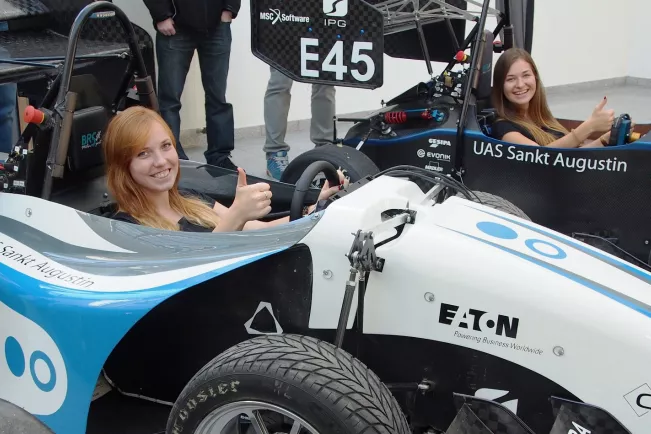
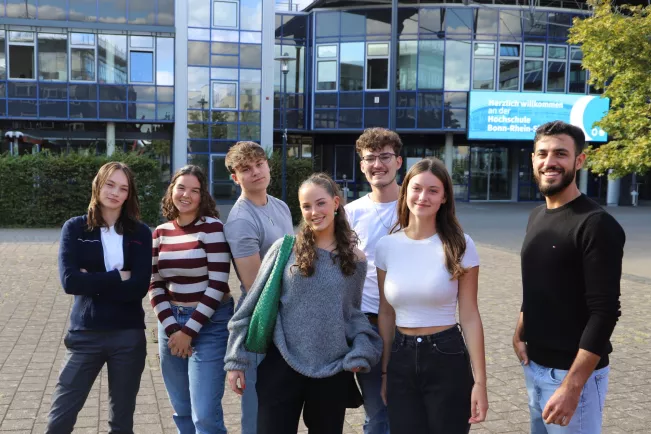
The university is located in Hennef, Rheinbach and Sankt Augustin. In Bonn, the University of Applied Sciences runs the B-IT (Bonn-Aachen International Center for Information Technology) jointly with Bonn University and Aachen Technical University (RWTH). The University Development Plan (Hochschulentwicklungsplan, HEP3) contains the strategic objectives that the University intends to achieve as well as the concrete measures taken to reach these goals - the main motive being sustainability
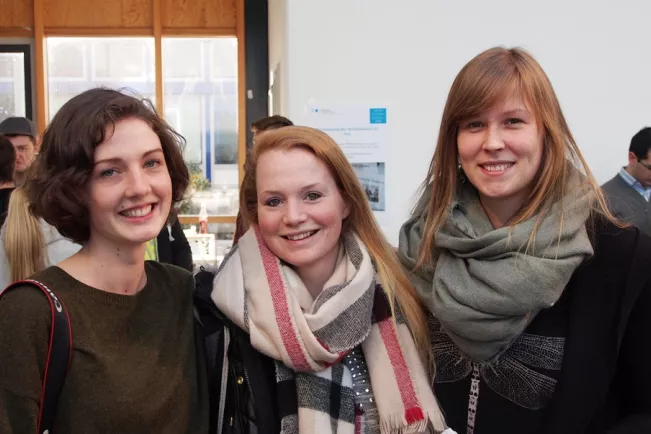
Studying at Hochschule Bonn-Rhein-Sieg
At Hochschule Bonn-Rhein-Sieg, students can expect a practice-oriented course of study based on the latest research findings in around 40 degree programmes. There is also a range of continuing education and certificate degree programmes.
The professors have experience in science and business. An excellent technical infrastructure and well-equipped laboratories are just as much a matter of course here as numerous PC pools, university-wide Wi-Fi, a modern university and district library and an active campus life. H-BRS bundles its numerous cooperative doctoral programmes in the university's own Graduate Institute; around 100 PhD students are currently enrolled on doctoral programmes at H-BRS.
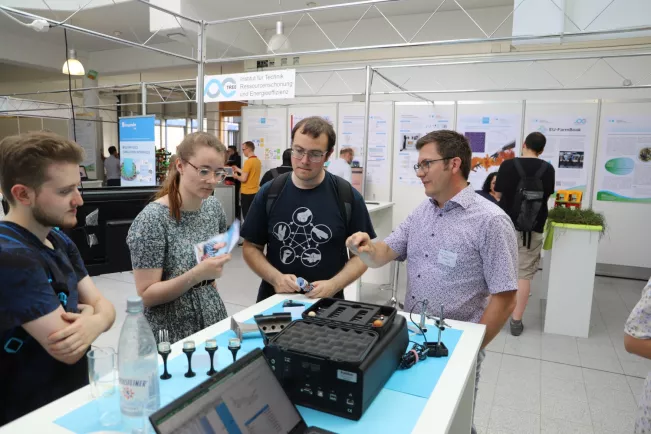
Research@H-BRS
As a University of Applied Sciences, H-BRS is intensively involved in practical research. A total of 17 research institutes cover a wide range of topics from detection technologies, genetics, sustainable development, resource conservation, security research and visual computing. In addition, the university conducts extensive research in cooperation with regional and national industry and has founded the Centre for Applied Research, where companies can rent space at the university for research questions.
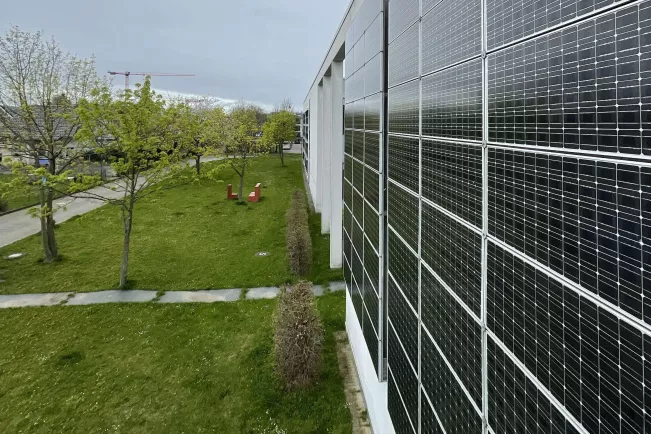
Sustainability - We take responsibility
In June 2022, the President's Office of the university adopted a sustainability strategy. It covers the areas of research, teaching, transfer, governance and campus life as well as digitalisation. The goals include unsealing campus areas, expanding sustainability-oriented degree programmes and researching new mobility and energy concepts. H-BRS's sustainability management supports the implementation.
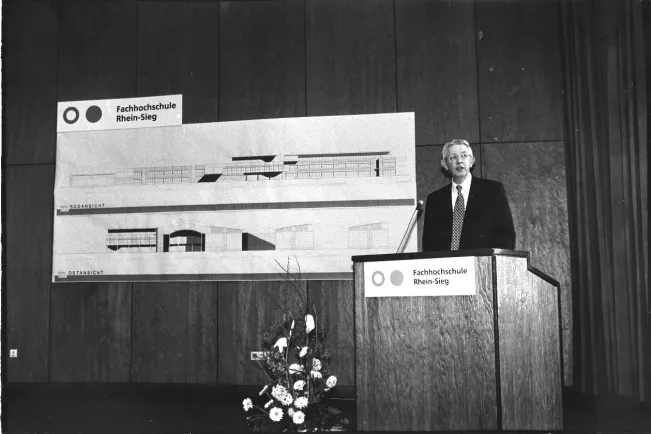
History of the university
Unique in Germany, Hochschule Bonn-Rhein-Sieg is the result of a joint initiative by the Bundestag and federal government, the state parliament and state government as well as the region as part of the Bonn-Berlin Compensation Agreement reached in 1994. The official founding date is 1 January 1995.
The special mission of the H-BRS: to create new academic teaching and research capacities and to contribute to the structural development of the economic region through practical projects and co-operation with industry. In the summer of 1999, the first 26 graduates receive their diplomas. By 2002, it had already surpassed its original target of 2,500 students and had to be expanded. Today's H-BRS has since been released from special federal funding and has created excellent teaching, learning and research conditions largely autonomously.
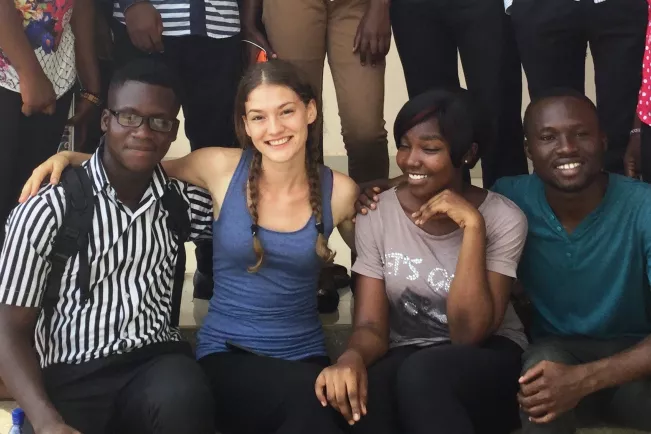
From the university to the world
In view of the changing demands of the labour market, Hochschule Bonn-Rhein-Sieg intensively promotes study visits abroad. The summer schools, which are also supported by the university's development organisation, are attractive even for undergraduate students. In the winter semester 2023/24, over 18 per cent of foreign students are enrolled at the university. Hochschule Bonn-Rhein-Sieg cooperates with around 80 foreign universities in around 40 countries.

Language Centre
Foreign language modules with a focus on technical language are anchored in the curriculum of almost all Bachelor's degree programmes; students can also take additional language courses on a voluntary basis. In addition to language courses in currently 12 languages, the university's own Language Centre offers a writing centre for German and English, international and intercultural teaching projects and language examinations.
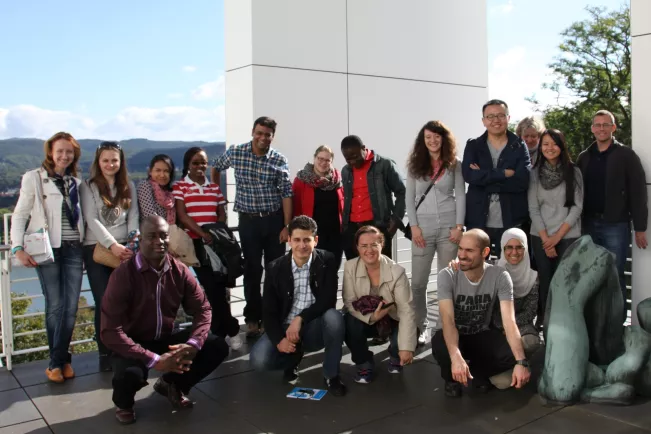
Specialists for business and industry
We attach a lot of importance to training highly qualified specialists and executive staff for the national and international job market. In addition, we make our students familiar with company foundation as an alternative to employment by providing them with the necessary information and infrastructure at an early stage of their studies.
The Alumni Network links alumni and current students within a continuously growing network so as to enable them to jointly and actively shape their future.
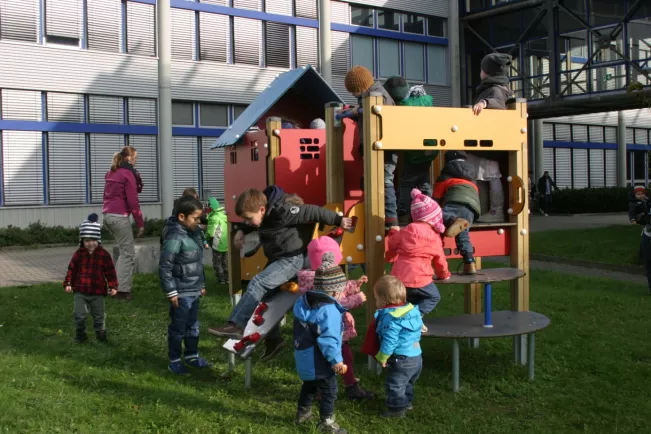
Family-friendly university
We help students and employees to reconcile their study, academia and family commitments by offering family-friendly measures to students and employees alike. The number of female professors and research associates working for the H-BRS is above average; our manifold measures are also aimed at making the study of technical subjects more attractive to female pupils.
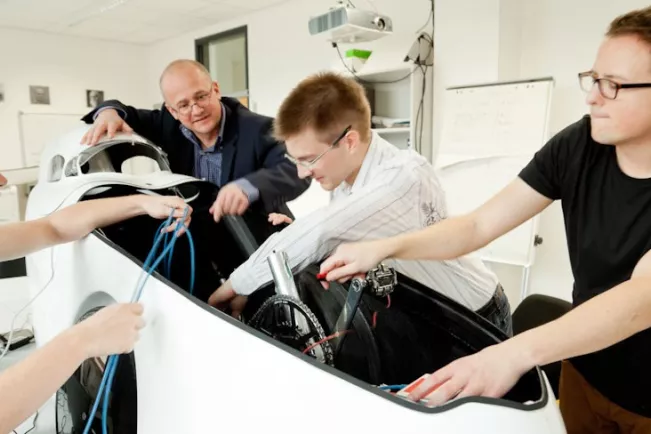
H-BRS - simply excellent!
A number of excellent rankings and achievement awards, above all the feedback received from satisfied students and alumni, prove that the University is already one of the top universities in many respects.
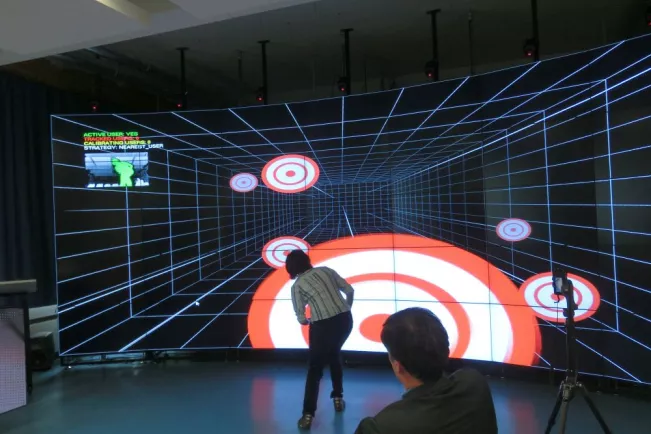
Facilities
H-BRS has an excellent technical infrastructure, numerous well-equipped laboratories in the Departments of Natural Sciences, Computer Science and Engineering and Communication.
You can borrow state-of-the-art media from our university and district libraries in Sankt Augustin, Rheinbach and Hennef, even as a guest user.
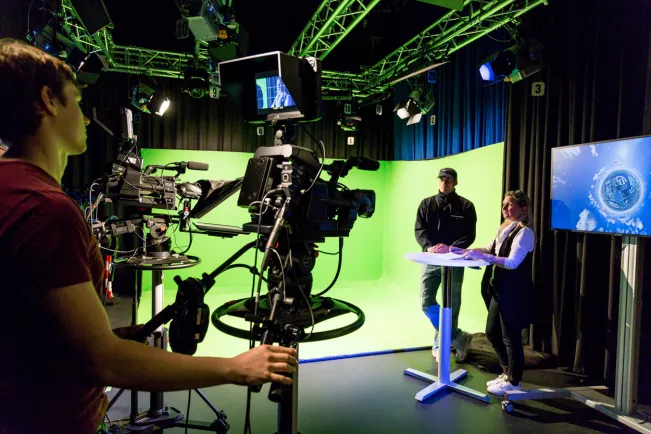
Laboratories and studios
The university buildings in Sankt Augustin and Rheinbach are new buildings that were constructed between 1997 and 1999. They have been extended and remodelled since 1999, so the laboratories and studios are very modern and also have exclusive technical equipment. The university's students learn in a practical way in a technical environment that meets the latest standards.
PC pools
Students at the university are given their own e-mail address through the university, can access their exam results via the net and have access to the PC pools and project rooms at all times, where work can be done even after the regular opening hours.
Contact

Location
Sankt Augustin
Room
E 241
Address
Grantham-Allee 20
53757, Sankt Augustin
Contact hours
Montag bis Freitag: 10 bis 15:30 Uhr
Telephone
+49 2241 865 9712